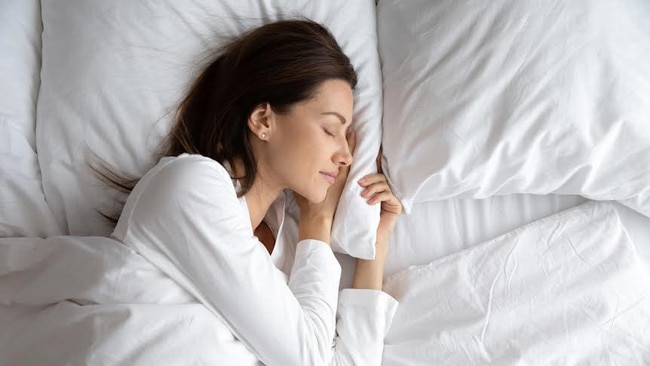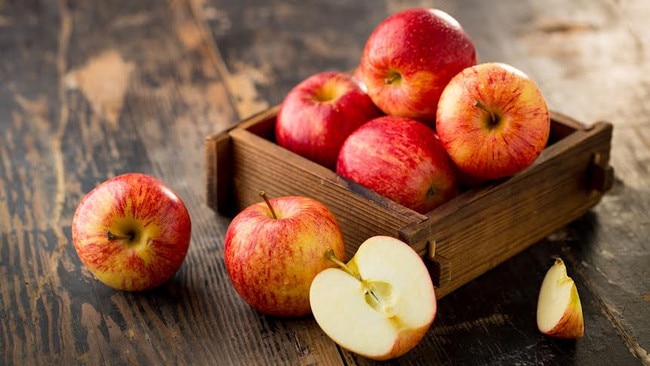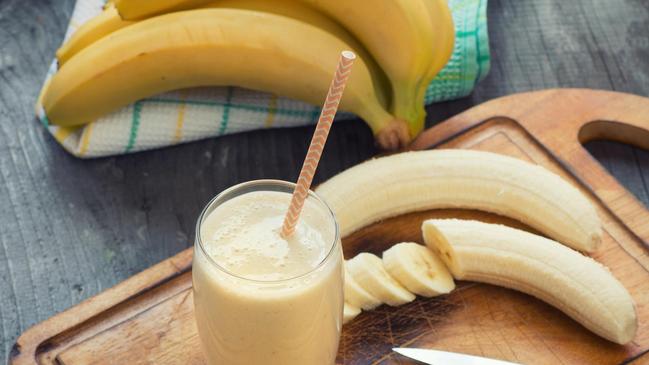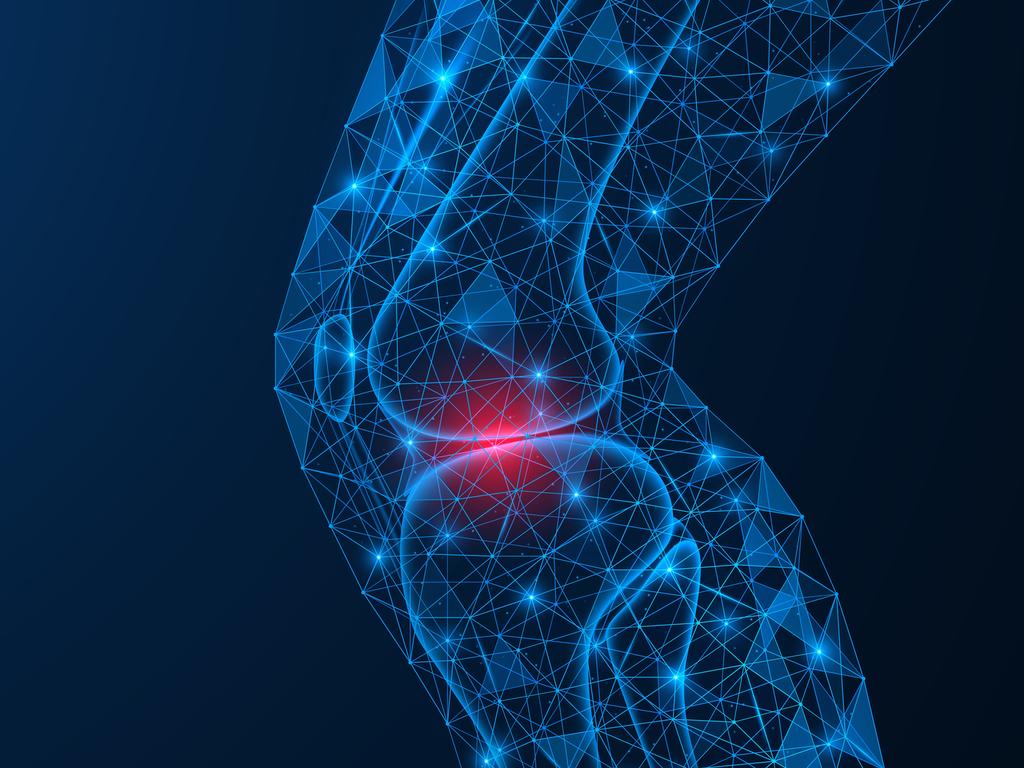Ten ways to boost your hormone health
From resistance training to eating more leafy greens, this is what you should do to stay in balance.

Dr Nicky Keay is on a quest to get us better acquainted with our hormones. We need to nourish and nurture them, exercise to enhance them and limit the kind of “extreme lifestyle habits” - by that she means too much drinking, too little activity and faddy diet practices - that hamper our hormonal health.
“We each have hormones working magic inside us,” she says of the body’s chemical messengers. “And they have these powerful and far-reaching effects on every single system in the body - the brain, the reproductive system, muscles and bone - yet most people have little idea how to harness their hormones to benefit wellbeing.”

A prolific author of dozens of published clinical papers, Keay offers advice that is grounded in sound science. It was after studying medicine at Cambridge 30 years ago that she became interested in exercise endocrinology, which looks at the hormonal response to exercise, and started working with elite athletes and professional dancers at St Thomas’ Hospital in London, where her research was supported by the International Olympic Committee.
Now an honorary clinical lecturer at University College London’s school of medicine, she contributes regularly to the British Journal of Sports Medicine and has written a book, Hormones, Health and Human Performance, which she hopes will empower people to achieve better hormonal health. “Your hormones will do their utmost to maintain balance within your body, but if you are challenging them with too many extreme or detrimental lifestyle habits, their job becomes impossible,” she says. “Making even one small lifestyle change could be the tipping point to improved health and longevity.”
Exercise at the best time
Working out is generally good for you whenever you do it, Keay says.
“Physical activity increases the sensitivity of body tissues to key hormones that help us deal with stress. It also harnesses hormones that improve metabolic, skeletal and muscle health.” However, certain times are more suited to rigorous workouts than others. “In theory, the morning release of the stress hormone cortisol might be expected to help with exercise,” she says. “Intense exercise later in the evening has been shown to disrupt sleep patterns, which has a negative effect on hormone-secretion patterns at night.”
In studies on athletes, their best performances tend to be in the early evening, “a time that matches the most favourable hormonal milieu”, although Keay says there might also be subtle differences in hormonal responses to exercise for men and women. “In one recent study that looked at the effects of exercise timing it seemed that, for women, exercising in the morning helped to prevent the dumping of fat in the abdominal area, the worst place for it to settle, while early evening exercise was more beneficial for improvements in muscular strength.”

Eat apples, greens and lentils
Our gut microbiome plays an important role in hormonal health.
“Food and the gut microbiome influence hormones such as insulin, which regulates metabolism and weight control. The so-called gut-brain axis helps with the regulation of immune and inflammatory responses that determine cardiometabolic health and are also factors in kidney and musculoskeletal health.”
The first step to prepare the gut is to eat prebiotic fibrous food. Dark-green leafy vegetables and fermentable fibre found in fruit and vegetables - garlic, onion, leeks, chickpeas, beans, lentils, artichoke and asparagus - are important. “The cellulose found in the cell walls of many of these plants can’t be fermented but does help to keep the gut moving and prevent ‘unfriendly’ gut microbiota from proliferating,” Keay says.
Inulin, found in wheat, onion and bananas, is also particularly effective as a prebiotic. “Once you’ve been eating these prebiotic foods for a few weeks, it’s time to ‘fertilise’ your gut bacteria with probiotics found in fermented foods such as kefir, sourdough bread, sauerkraut, yoghurt, kimchi and kombucha,” Keay says. “The greater variety of these foods the better the outcome for hormonal health.”
Do resistance exercise three times a week from your forties
From middle age onwards muscle mass starts to decline. “It happens because of a gradual drop in sex steroid hormones and growth hormones,” Keay says. “The good news is that even as we get older muscle remains responsive to mechanical stimulus in the form of resistance exercise, so we can slow these losses.”
To compensate for lower hormone levels from your mid-forties you will need to be diligent with resistance training and do it three times a week.
“You can lift weights if you want to, but Pilates and resistance bands are an option, as are exercises that involve using your own body weight, such as push-ups and squats,” Keay says.
Our bodies respond to any type of resistance training by producing more anabolic or “body-building” hormones such as IGF-1 and testosterone, a powerful anabolic steroid. “It is when higher levels of these hormones circulate that greater beneficial adaptations occur such as improved muscle and bone strength. Resistance exercise also helps to increase our metabolic rate, which stays raised even after stopping a workout.”
The result is greater fat-blasting and more calories burnt.
Avoid alternate-day fasting
Hormones rely on regularity of meals to remain in equilibrium. Keay says that alternate-day fasting or the 5:2 approach have the potential to cause hormonal disarray. “Any kind of stop-start diet or extremes of eating really confuse the hormones and their biological clocks. Fasting on some days causes circadian misalignment, which is very bad for our hormones as they struggle to adapt and maintain some sort of balance.”
We are naturally designed to have one overnight fast and extending that so that you don’t eat late in the evening - such as the 16:8 approach - won’t cause disruption provided that you stick to it. But eating regular meals is important. “Our hormones need feeding and the message is that eating in a consistent manner will help to maintain optimally functioning hormonal networks,” Keay says.
Men: extreme endurance exercise is unhealthy for your hormones
While a sedentary lifestyle is bad news for hormone health, extreme exercise habits - lots of lengthy cycles, swims or runs without adequate recovery and refuelling - will take their toll on male hormones. “In men who obsessively maintain a high training load that is not balanced by sufficient sleep and good nutrition there can be suppression of the control centre of the male hormone network,” Keay says. “In an attempt to save energy, the body shuts down processes that are less essential, including reproduction and fertility.”

Dance, play tennis and run
Bone is an active tissue (about 10 per cent of the skeleton is replaced every year), and its strength is dependent on a nurturing cocktail of hormones. “A lot of hormones, including calcitonin, that are produced in endocrine glands a long way from bone tissue play a part in bone health,” Keay says. “Even gut hormones play a role in calcium absorption and bone turnover.”
Oestradiol, the most active type of oestrogen, is another hormone essential for bone health. In men, testosterone is converted to its sister hormone, oestradiol. And the effect exercise has on strengthening the bones is reinforced by growth hormones that flood through the body when we are active. “When it comes to bone-boosting, the ideal exercise is one that involves both changes in direction and some resistance effort. Dance is great, as are sports like tennis, rugby and football, while running is good for strengthening leg and hip bones and rowing for strengthening the legs and spine.”
Swimming does not load the skeleton in the same way but involves the whole body, with muscle pulling on the bone to help with bone strength. “It is not the best for bone health, but neither is it the worst,” Keay says. “As with cycling - another activity that is not the best at bone-building - it is strongly recommended that you add resistance training to your weekly regimen if these are your main forms of exercise.” Too much of any exercise is not good for the hormones that support bone health. “There is a paradoxical effect of exercise on bone,” Keay says. “More is not better.”

Have a banana milkshake after an intense workout
Refuelling after resistance or strength training or any intense or prolonged workout is important. “Combining some protein with complex carbohydrate is a good strategy to replenish glycogen stores and provide some of the nutritional building blocks for hormone-driven muscle repair and synthesis,” Keay says. “A banana milkshake or smoothie is a great way of combining the elements you need.”
For young women, intense exercise and fasting - or failing to refuel after a workout - is a particularly risky cocktail. “It disrupts female hormone network timing and can have adverse effects on female hormone production,” Keay says. “If you exercise hard or long, you need to promptly refuel with carbs and protein afterwards to support healthy hormone networks.”
Drink milk before bed
Growth hormones produced when you sleep are important for muscle and bone repair as well as metabolism. Provided that you have been active and have eaten well during the day, you can get fitter while you are asleep, and you can further support this hormone-driven repair process by taking in some protein before bed.
“A glass of milk is ideal because it contains casein, a protein for providing the building blocks of the hormone-driven process of muscle repair, and tryptophan, a precursor molecule for making the sleep hormone melatonin,” Keay says. “From middle age onwards, I would recommend taking a small amount of milk or yoghurt every evening.”
Go to bed before midnight
“If you were to push me on the single most important thing you can do for hormonal health, I would have to say it is sleep well,” Keay says. “It’s when you are sleeping that your hormones work their magic of supporting health.
“Studies have shown that going to bed after midnight increases the risk of cardiovascular disease. You also risk missing out on the benefits of the nocturnal secretion of growth hormone, which strengthens muscle and bone.” Additionally, sleep is one of the key stimuli for the release of luteinising hormone (LH), which increases overnight to support the production of the sex steroids oestradiol and testosterone. “There’s also an increase in leptin, the satiety hormone, during sleep, which prevents you from waking up ravenous.”
Consistency is key, and that means going to bed at the same time each night, waking up at the same time each morning and trying to get at least seven hours kip. “When we go to sleep impacts the timing of sleep stages such as rapid eye movement, REM, and non-REM sleep. And these stages, in turn, determine when certain hormones are released in the body.”
Keep your bedroom as dark and quiet as possible. “Disrupted sleep interferes with the timed hormonal control of energy balance,” Keay says. “If you have interrupted sleep it can reverse the timing of peak cortisol production from the morning to the evening, which can mean you are more wide awake and the struggle to sleep continues.”
Avoid screens for at least an hour before bed
Dropping light levels at dusk are detected by the body’s central circadian clock, the suprachiasmic nucleus (SCN), which is located in the hypothalamus part of the brain. “When this happens, the SCN prompts the pineal gland located deep in the brain to release the hormone melatonin, which prepares us for sleep by lowering body temperature and blood pressure,” Keay says. “Looking at the screens of any electronic devices late in the evening, but particularly just before bed, sends false signals to the SCN to delay melatonin release, which is why so many people find it difficult to fall asleep after reading their phone or tablet in bed.”
The Times






To join the conversation, please log in. Don't have an account? Register
Join the conversation, you are commenting as Logout